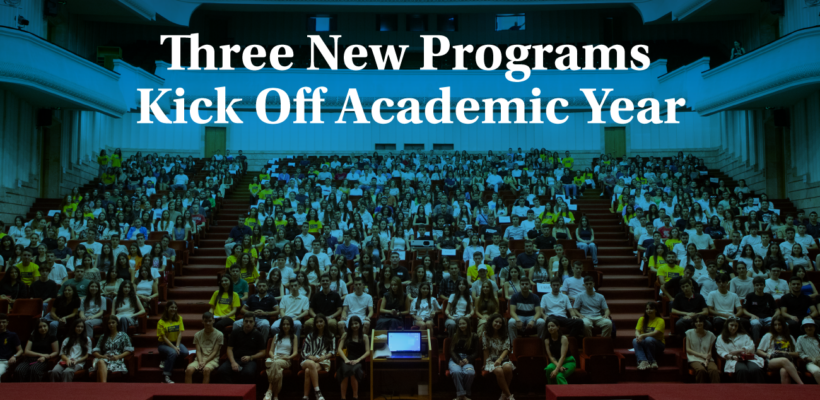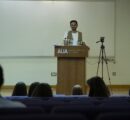
AUA Welcomes First Cohorts of Three New Programs
3 min readYEREVAN, Armenia — The American University of Armenia (AUA) proudly welcomes the first cohorts of three new programs: Master of Arts in International Relations and Diplomacy (MAIRD), Master of Public Affairs (MPA), and Bachelor of Science in Environmental and Sustainability Sciences (BSESS). These programs are well-positioned to bring fresh perspectives to and enrich the academic landscape of AUA.
The MAIRD program is being offered for the first time this semester and is prepared to take on the challenges of starting a new initiative and preparing students both academically and professionally. The current students in this program predominantly come from backgrounds in education, communication, government, and business management. The first semester has kicked off with a diverse cohort from a variety of academic disciplines. Of the twenty-five students accepted to the program, fourteen have enrolled and are benefiting from a comprehensive curriculum that grows their understanding of international relations and diplomacy.
The MPA program equips graduate students with the skills and knowledge for analyzing and resolving managerial and organizational problems in the public sector. It appropriately balances theory and praxis, especially focusing on the development of managerial capacity in the public sector. The inaugural cohort currently enrolled in the program comprises thirteen students: recent graduates from AUA and other universities in Yerevan and the region and mid-career professionals. Both public and private sectors are duly represented, with a significant presence of participants from the education and government fields.
The BSESS program is designed to equip students with the knowledge and skills to tackle pressing environmental sustainability challenges. It enables students to analyze human impact on the climate, biodiversity, biogeochemical cycles, water resources, land systems, and more. The program has already made significant strides in attracting an impressive applicant pool of sixty students. Of the twenty-eight admitted students, twenty-six have embarked on their journey toward gaining expertise in environmental science. What sets this program apart is its diversity — it boasts a cohort comprising students from Yerevan, other cities of Armenia, Artsakh, and two international students from Lebanon.
The students in the inaugural cohorts of these programs represent a rich tapestry of talent and educational backgrounds that will undoubtedly contribute to the academic vitality of the AUA community.
To meet the demands of AUA’s expansion and growing student body, the University has undertaken a series of initiatives to enhance its campus. In response to the limited availability of space for classrooms and faculty offices, the President’s residence in the Paramaz Avedisian Building (PAB) has been transformed into additional classrooms and faculty offices, resulting in the creation of two more large classrooms and six faculty office spaces. A new teaching facility in PAB has also been redesigned to host a large classroom and a smaller classroom connected to a wet lab. Recognizing the need for further enhancements, AUA has also reconstructed the computer labs in the basement of the Main Building, consolidating them into one spacious laboratory capable of accommodating 30 or more students.
These efforts are dedicated to improving the learning environment and ensuring that our campus effectively serves the needs of our student body, faculty, and staff. Throughout all these initiatives, our dedication remains steadfast – to provide our community with an exceptional learning environment and uphold AUA as a symbol of academic excellence.
Founded in 1991, the American University of Armenia (AUA) is a private, independent university located in Yerevan, Armenia, affiliated with the University of California, and accredited by the WASC Senior College and University Commission in the United States. AUA provides local and international students with Western-style education through top-quality undergraduate and graduate degree and certificate programs, promotes research and innovation, encourages civic engagement and community service, and fosters democratic values.








